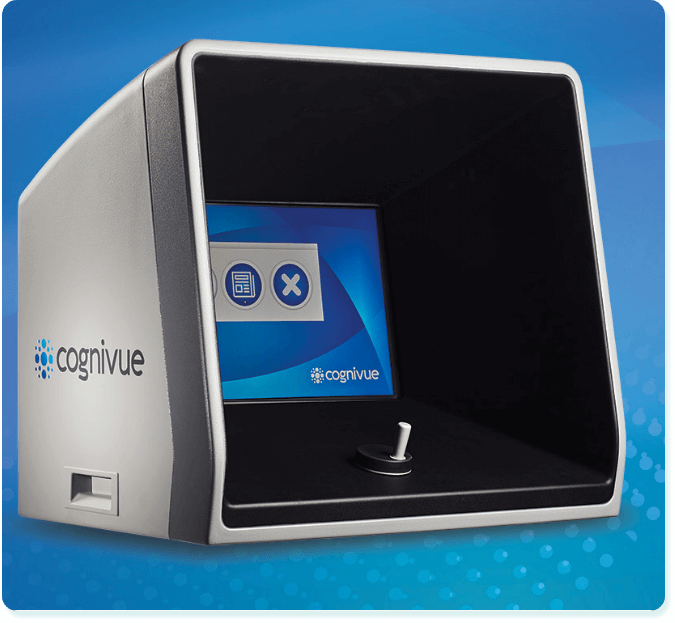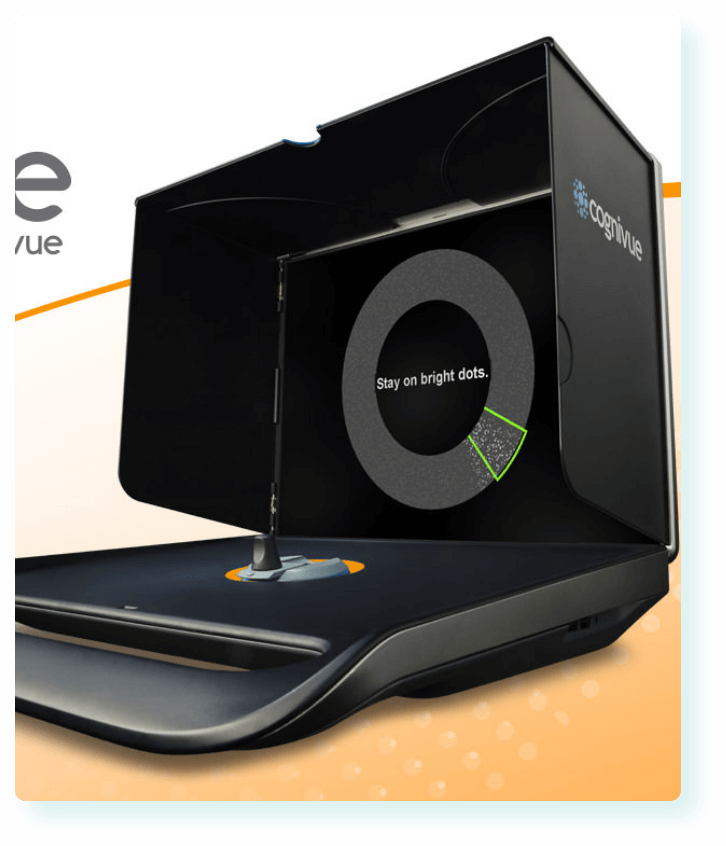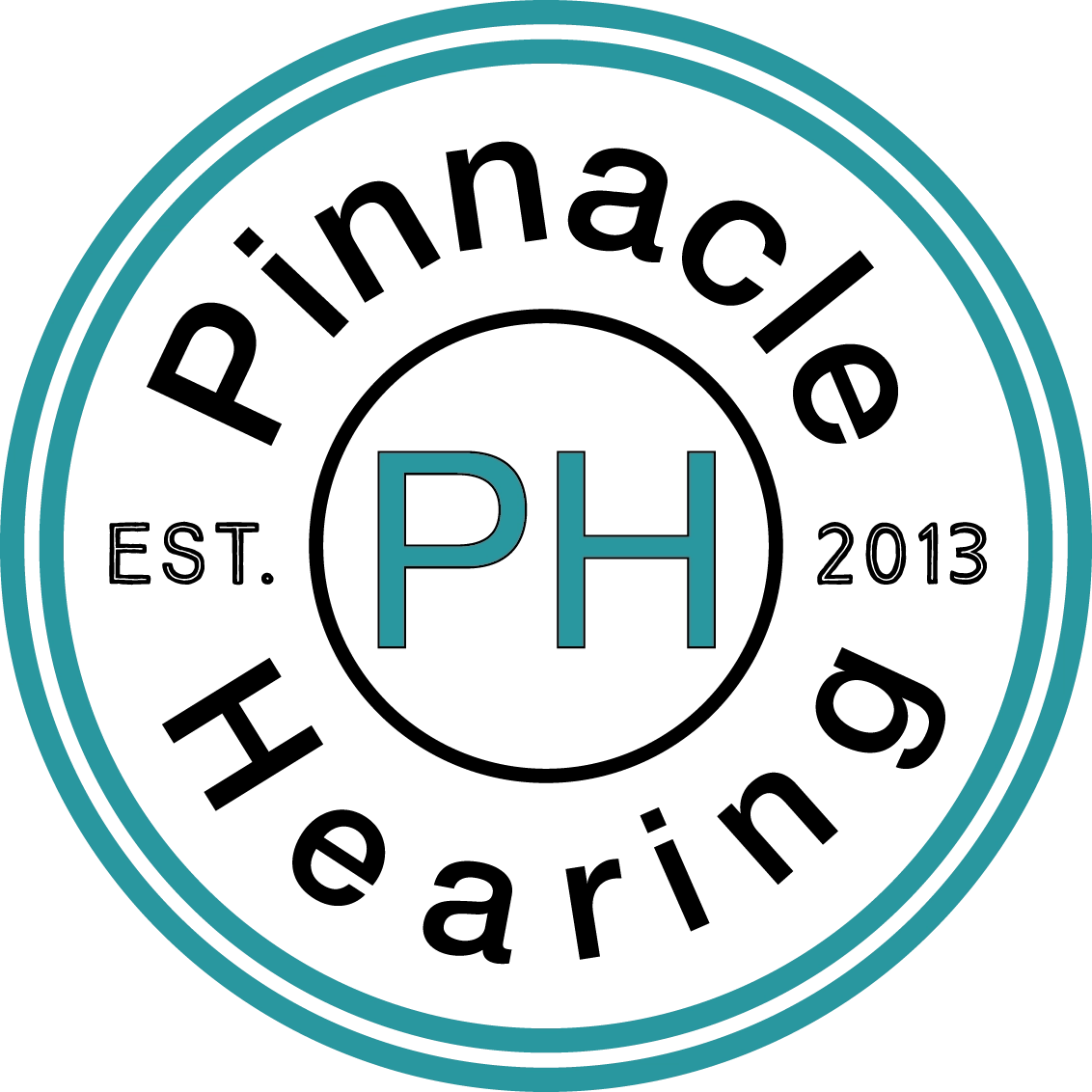Cognivue

The Link Between Hearing Loss and Cognition
Several studies indicate that people with hearing loss may develop cognitive decline earlier than people with normal hearing. A team at John Hopkins conducted a six-year study involving 2,000 seniors, looking at cognitive impairment scores during that period. The study concluded that those seniors with hearing loss had a faster cognitive decline.
Hearing loss can affect cognition. Cognition can be affected by hearing loss. The two are clearly linked together and we at Pinnacle Hearing believe that audiology plays a key role in detecting early cognitive decline.
Significant impact on key brain functions. The slow or gradual onset of hearing loss can have a significant impact on several key brain functions, including hearing, memory, speech and language portions of cognition.
Greater risk for cognitive decline. Hearing impairment is tagged as a greater risk factor for cognitive decline and dementia compared to other mid-life risks. With proactive management of modifiable risk factors, specifically hearing loss, the onset or progression of the disease may be delayed or slowed.
Slow down rapid progression Several studies have concluded that using hearing aids or other rehabilitative services for hearing loss may effectively slow down the rapid progression of cognitive decline.

Why We Use Cognivue
Pinnacle Hearing is proud to offer Cognivue testing, one of the latest and advanced technologies available today.
Here’s why we use Cognivue:
Reduce progression of cognitive decline
Cognitive screening can be aligned with auditory performance and can help us differentiate our practice and reinforce the use of hearing aids.
Deliver world-class patient care and service
With Cognivue, we can further deliver world-class patient care and services by developing and setting best practices in the industry. Cognivue allows us to offer the latest hearing healthcare innovation through interprofessional collaboration.
Early detection
As we screen for auditory issues, Cognivue allows us to spot cognitive decline in the early stages and potentially slow its progression.
At Pinnacle Hearing, we support the concept of including cognitive screening as part of the overall testing protocol given its association with hearing loss.
Cognivue Thrive Arkansas
The evidence and studies supporting the link between brain health and hearing health continues to expand globally. Likewise, the use of hearing intervention as a strategy to mitigate cognitive decline is also expanding. That being said, we can say that the need and demand for an accurate and modern cognitive testing tool to be used in audiology practices is timely and relevant.
At Pinnacle Hearing, we want our clients to enjoy modern hearing health services to promote a better quality of life. We are proud to introduce Cognivue® Thrive – the first fully-computerized cognitive screening test that can be self-administered and produce results in five minutes.
Here’s why we use Cognivue:
Cognivue Thrive is based on traditional screening methods but without the associated bias and practical barriers typically linked to paper and pencil tests.
Cognivue enhances our scope of patient care by providing a more comprehensive scope of assessment, accurately pinpointing where the patient is today in terms of hearing and cognitive abilities. Cognivue also plays a big role in helping us map out hearing solutions or adjustments that can benefit overall wellness.
Cognivue Thrive features:
5-minute cognitive assessment
Self-administered by the patient
Portable, laptop-like device
User-friendly interface
Comprehensive implementation resources
Our team will also be on standby during your Cognivue Thrive assessment so we can assist you or attend to your on-site queries and concerns.



